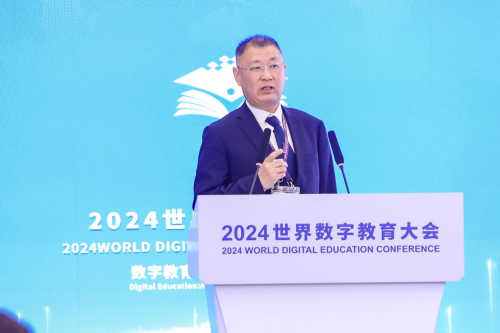On January 30th, the 2024 World Conference on Digital Education, co-hosted by the Ministry of Education, the Chinese National Commission for UNESCO, and the Shanghai Municipal People's Government, commenced in Shanghai. The Minister of Education, Huai Jinpeng, chaired the opening ceremony and delivered a keynote speech, "Working Together to Promote the Application, Sharing, and Innovation of Digital Education". Chen Jie, Deputy Minister of Education, attended the opening ceremony and led the plenary session, while Wu Yan, another Deputy Minister, oversaw the launch of the international version of China's National Smart Education Public Service Platform.

At the invitation of the Ministry of Education's Department of Vocational and Adult Education, Yang Xinbin, the Party Secretary of Shenzhen Polytechnic University (SZPU), participated in the conference. He presented a report titled "Strengthening Digital Skills Supply to Serve Lifelong Learning for All" at the "Educational Digitalization and Building a Learning Society" parallel session. In the context of national efforts towards industrial digital transformation and accelerating the creation of new productive forces, digital skills have emerged as crucial for the modern workforce. He shared insights on SZPU's initiatives and achievements in digital skills development, training, and assessment, as part of UNESCO's digitalization project in vocational and technical education and the institution's broader digital transformation efforts.
This conference was themed "Digital Education: Application, Sharing, Innovation", focusing on six key topics: enhancing teachers' digital literacy and competencies, digitalization in education and the construction of a learning society, global trends and indices in digital education development, artificial intelligence and digital ethics, the challenges and opportunities of digital transformation for basic education, and the digitalization of educational governance and digital education management. These topics were explored in depth through six parallel sessions. The conference saw the participation of over 800 delegates from both domestic and international spheres, including more than 400 foreign guests from over 70 countries and regions, as well as relevant international organizations.
 School Motto:
School Motto:
 Search
Search
 School Motto:
School Motto:
 Search
Search